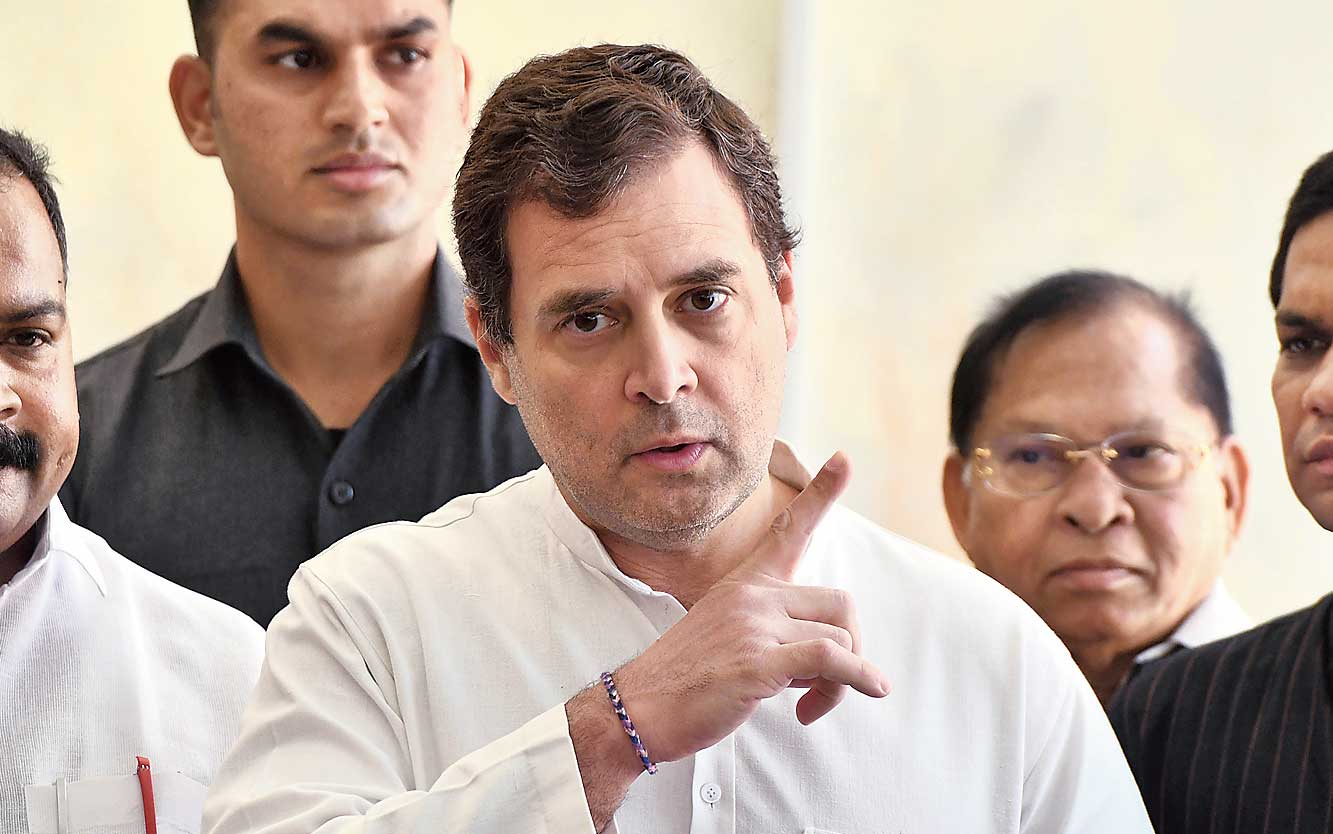A fear that the coronavirus crisis might end up undermining the fundamentals of Indian democracy is troubling Opposition politicians, and Rahul Gandhi is no exception.
Asked whether he feared the nature, and even the structure, of Indian democracy could change in the aftermath of the Covid-19 outbreak, the former Congress president acknowledged the possibility.
“That is a real possibility. But we have to first take care of the virus. We know India has to be democratic. Right now, we have to fight the virus,” he said on Thursday.
What the de facto supreme leader of the principal Opposition party was implying is that the possibility of Indian democracy being undermined cannot be ruled out but this is not the time to discuss the concern publicly.
Privately, however, many Opposition leaders, including some of Rahul’s senior Congress colleagues, are discussing the possible threat to democracy.
Some of them fear that the brewing economic crisis can aggravate matters, making it difficult to guess how governments across the world would respond.
Normal politics is anyway suspended for now, and supporting the government’s fight against the coronavirus has become a socio-political imperative for the Opposition.
While the Congress is still flagging the government’s deficiencies in the garb of constructive suggestions, other Opposition parties are hardly speaking out these days.
The financial distress stemming from the virus-induced disruptions is likely to leave the state governments unusually vulnerable, and any antagonism towards the Narendra Modi-led central government can put them in a spot in the coming months. The situation is unlikely to improve, at least financially, over the next two years.
Rahul wasn’t willing to discuss any political matter on Thursday: he was extremely cautious even while speaking on the attempts to lend a communal colour to the spread of the virus.
“We have to fight this crisis together, irrespective of caste, religion, age…. Everybody will have to unite. The moment we start fighting among ourselves, trouble will intensify. A divided India cannot succeed,” he said.
He avoided calling out the Right-wing ecosystem’s brazen attempts to tarnish Muslims in connection with the outbreak.
Rahul, who had sounded the first alert about the impending medical and economic crisis on February 12, on Thursday side-stepped a barrage of questions about the Prime Minister’s delayed response.
The Congress believes that while the health crisis would ebb sooner or later, the debilitating economic crisis will continue for at least the next two years.
This can be the trigger for a major political conflict as the Congress believes Modi had demolished the fundamentals of the economy long before the Covid-19 outbreak, while the government is certain to shift the entire blame on the pandemic.
Also, the Congress is aware of Modi’s penchant for portraying any criticism of the country’s economic management as “anti-national”. Many Opposition leaders suspect the space for democratic dissent will shrink further in the coming months.
Rahul, however, wrapped up his media conference by appealing to the people not to see the crisis through the prism of fear.
“There is no need to worry about it --- that we were never locked up like this. This country is bigger than any disease. We will fight it together and India will come out as a better place,” he said.
“Don’t see it through the prism of fear. See it through the prism of confidence.”











